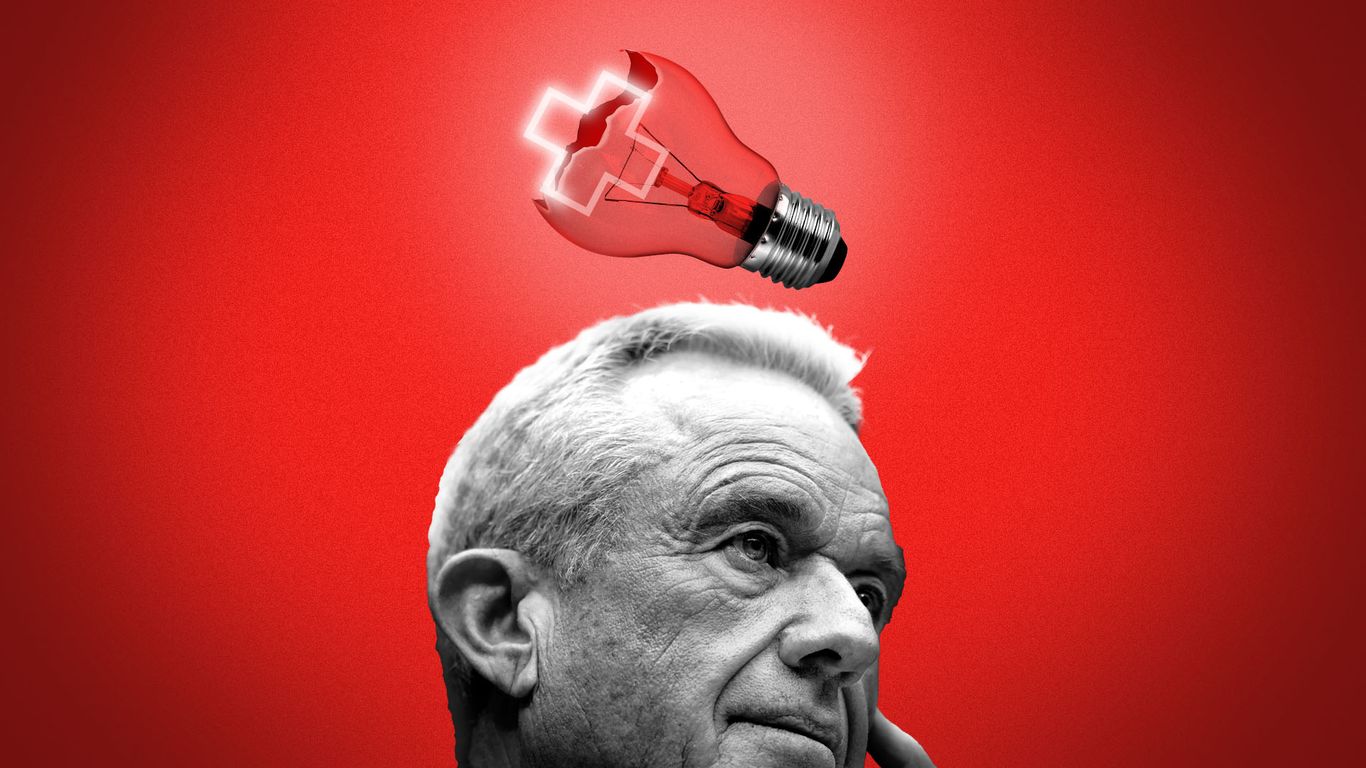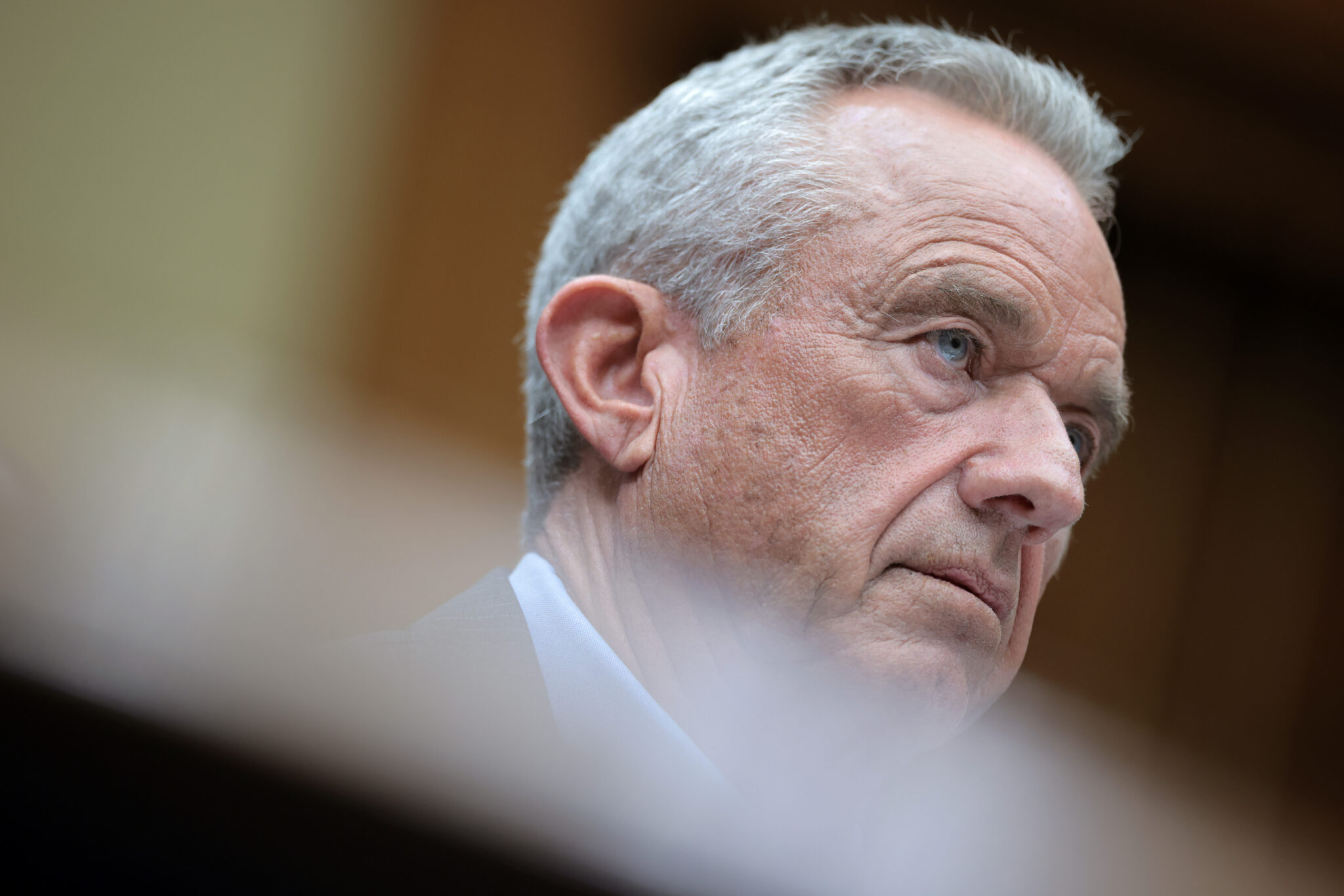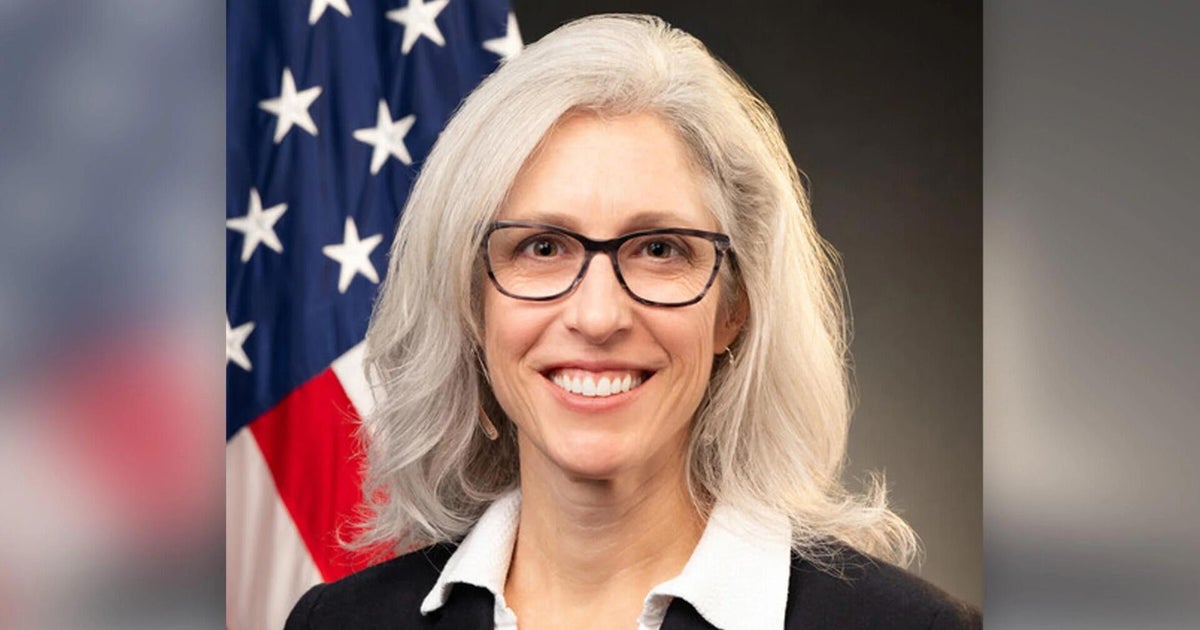Controversy Over RFK Jr.'s Vaccine Skepticism Sparks Fear in Medical Community

Introduction
In a recent move that has sparked controversy, Robert F. Kennedy Jr., a prominent anti-vaccine activist, has publicly expressed skepticism about the effectiveness and safety of vaccines. This has stoked fears among the medical community that this pullback could lead to the loss of important medical breakthroughs and hinder America's global lead in the field of healthcare.
Key Details
Kennedy's statements have been met with strong opposition from scientists, including some who served in the Trump administration, who warn that America's global lead in healthcare is slipping away. They point to the numerous scientific studies that have proven the effectiveness and safety of vaccines, and the role they have played in eradicating deadly diseases. With the rise of vaccine hesitancy and anti-vaccine movements, there are concerns that this could lead to a resurgence of preventable diseases and a setback in medical progress.
Impact
The consequences of RFK Jr.'s vaccine pullback could be far-reaching. It could lead to a decline in public trust in vaccines and the medical community, and hinder the progress of important medical breakthroughs. With the ongoing global pandemic, the need for effective and safe vaccines has become more urgent than ever. It is crucial for individuals to educate themselves about the science behind vaccines and the importance of vaccination, and to trust in the extensive research and evidence that supports their effectiveness and safety.
Robert F. Kennedy Jr. is an American politician, environmental lawyer, and author, born on January 17, 1954, in Washington, D.C. He is the third of eleven children of Robert F. Kennedy, the U.S. Attorney General, and Ethel Skakel Kennedy. His family's political legacy includes his uncle, President John F. Kennedy. Kennedy's early life was marked by personal struggles, including drug addiction, which led to his arrest for heroin possession in 1983. However, he later redirected his life towards environmental advocacy and public service.
Kennedy graduated from Harvard University in 1976 with a degree in American history and literature and later earned a law degree from the University of Virginia in 1981. He began his career as an assistant district attorney in Manhattan but soon shifted his focus to environmental law. In 1987, he received a master's degree in environmental law from Pace University, where he taught environmental law from 1986 to 2018 and co-founded the Environmental Litigation Clinic.
Notably, Kennedy is the founder of the Waterkeeper Alliance, a global clean water advocacy group, and Children's Health Defense, which focuses on childhood chronic diseases and environmental exposures. He has been recognized for his environmental activism, including being named TIME Magazine's "Hero for the Planet" for his efforts in restoring the Hudson River. Kennedy has also been involved in high-profile legal cases against companies like DuPont and Monsanto. In recent years, he has been a vocal figure in vaccine skepticism and public health controversies.
In the 2024 U.S. presidential election, Kennedy initially ran as an independent candidate before endorsing Donald Trump. Currently, his involvement in public life includes controversial stances on health and environmental issues. Despite these controversies, his work in environmental law and advocacy has had significant impacts on public health and environmental protection. The **Trump administration** refers to the executive branch of the U.S. federal government during Donald J. Trump’s presidency, initially from January 20, 2017, to January 20, 2021, and resuming with his second term starting in 2025. It was characterized by a mix of aggressive domestic policies, significant judicial appointments, and a distinct foreign policy approach that emphasized "America First" principles[4][8].
The administration’s key activities included **tax reform**, notably passing the $3.2 trillion Tax Cuts and Jobs Act, which represented the largest overhaul of the U.S. tax code in decades[5]. Trump also renegotiated trade agreements with major economies including Mexico, Canada, China, Japan, and South Korea, prioritizing bilateral deals over multilateral ones such as the Trans-Pacific Partnership (TPP), which the administration withdrew from early on[1][2]. The administration sought to protect American jobs by restricting cheap foreign labor and influencing agencies like the Tennessee Valley Authority to retain American workers[5].
On the judicial front, the Trump administration appointed over 200 federal judges, including three Supreme Court justices—Neil Gorsuch, Brett Kavanaugh, and Amy Coney Barrett—shaping the judiciary for years to come[4]. These appointments were among the most significant achievements, influencing U.S. law on multiple fronts.
In foreign policy, the administration pursued a controversial agenda: it imposed travel bans on several predominantly Muslim countries, withdrew U.S. troops from northern Syria, and supported Saudi Arabia militarily despite congressional opposition related to the Yemen conflict[1][3]. It also fostered new international technology alliances, such as securing commitments from allies to exclude Chinese telecom giant Huawei from 5G infrastructure and signing AI cooperation agreements with the UK[5].
The Trump administration faced substantial political turmoil, including two impeachments by the House of Representatives—first in 2019 over Ukraine dealings, and again in 2021 following the January Discover related stories and their connections to this article Explore connected events with detailed insights and relationships Key entities mentioned across connected events Discover patterns and trends across related stories PFAS exposure linked to faster aging in men aged 50-65, with health risks and calls for stronger protections. AHA projects rising cardiovascular disease among younger women by 2050; explore risk factors, disparities, and prevention. Snooki reveals stage 1 cervical cancer and urges proactive Pap smears to catch it early. Explores why women experience chronic pain longer than men, linking immune differences and sex hormones to tailored relief. Utah measles outbreak linked to a state wrestling championship prompts caution as exposures rise and unvaccinated athletes face higher risk.About the People Mentioned
Robert F. Kennedy Jr.
About the Organizations Mentioned
Trump administration
🔗 Connected Events Overview
📊 Quick Insights
📅 Connected Events Timeline
👥 People Involved in Connected Events
Connected through:
Connected through:
🏢 Organizations & Products
🏢 Organizations
🛍️ Products
💡 Connected Events Insights
🔥 Trending Topics
Trending Blogs in Health

Forever Chemicals Accelerate Aging in Men Aged 50-65, Study Finds

Surging Heart Disease and Stroke Among Younger Women: Risk, Disparities, and Prevention

Snooki's Brave Cervical Cancer Revelation

Why Women's Pain Persists Longer Than Men's: Sex-Based Differences in Chronic Pain

Measles Outbreak Hits Utah Wrestling Tournament Amid Rising Exposures










